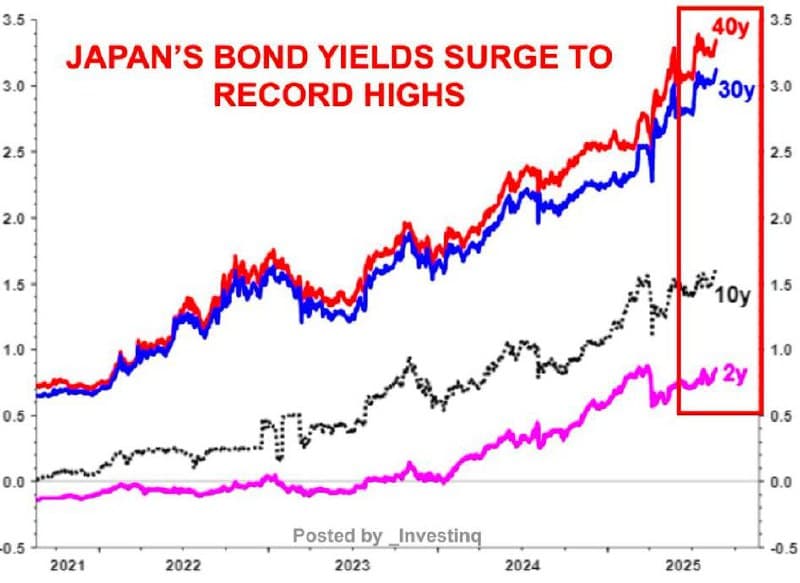Japan"s long-term bond yields have surged to unprecedented levels, disrupting the nation"s $3 trillion foreign bond market. As of today, yields on Japanese bonds are nearing 2%, prompting a reevaluation of the Yen carry trade that has historically favored U.S. Treasuries.
This shift comes as Japanese institutions, including banks and pensions, hold significant foreign assets, particularly $1.15 trillion in U.S. Treasuries. With local yields approaching 2%, the appeal of U.S. bonds, offering 4%, diminishes when factoring in the cost of hedging currency risks, which currently stands at about 2% annually.
Japanese investors traditionally hedge their currency exposure when purchasing U.S. assets. However, with local yields now competitive, the net return on U.S. bonds drops to just 2%, marginally better than domestic options. This situation mirrors recent developments seen in other global markets, such as the UK, where bond yields have also spiked due to economic pressures, as previously reported.
The impact of rising yields is expected to ripple through the global bond market, potentially reshaping investment strategies among Japanese investors. Analysts are closely monitoring how this will affect Japan"s status as the world"s largest creditor and the broader implications for international financial markets.







![[Video] Gunfire between Iraqi security forces and Sadr militias in Baghdad](/_next/image?url=%2Fapi%2Fimage%2Fthumbnails%2Fthumbnail-1768343508874-4redb-thumbnail.jpg&w=3840&q=75)
